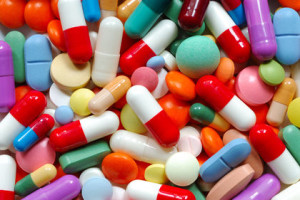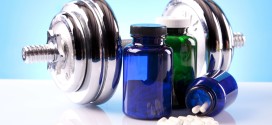 Did you know that all supplements are poisonous? Before you disagree and tell me that a daily dose of fish oil has lowered your blood pressure with no side effects or that creatine has helped you grow stronger, let me explain. All supplements are poisonous at a certain dose, above what is recommended. You may have read that vitamin D may help you sustain more energy throughout the day and help keep your bones stronger. But once you decide to take it, how do you know how much to take? Nutritional supplements are an unregulated industry. But even medical practices have errors in their prescribed dosage.
Did you know that all supplements are poisonous? Before you disagree and tell me that a daily dose of fish oil has lowered your blood pressure with no side effects or that creatine has helped you grow stronger, let me explain. All supplements are poisonous at a certain dose, above what is recommended. You may have read that vitamin D may help you sustain more energy throughout the day and help keep your bones stronger. But once you decide to take it, how do you know how much to take? Nutritional supplements are an unregulated industry. But even medical practices have errors in their prescribed dosage.
One of the common errors in medicine is when the patient is given an incorrect dosage. Even just one decimal point can be harmful or even deadly to the patient. Pharmacy staff are responsible for ensuring that people receive the correct medication and correct dosage. However, human error, bad lighting, and even metric unit confusion can lead to medication errors. Another cause of incorrect dosage is when people measure a dose of liquid medication using a kitchen spoon. Research has shown that spoon sizes influence us when we estimate the right dose and most of the time the estimate is wrong. One of the main reasons is that some were not able to distinguish between a tablespoon and a teaspoon. Another reason is that not all spoons are of standard size.
Everybody is different and people with the same disease or condition can require different doses of the same medication. Finding the right dose can depend on many factors such as the patient’s age, weight, cardiovascular status, pregnancy, if the patient is taking other medication, and the specific nature of the condition that is being treated. One example of this is the drug Synthroid (levothyroxine sodium). Dosing of this drug must be individualized and adjustments have to be made based on an assessment of the patient’s response to the drug. The same goes for pretty much all blood thinners – natural and pharmaceutical.
When checking the label on over the counter drugs or supplements, we see a recommended dosage. But what many manufacturers are not telling you is that some of them under-prescribe to avoid liabilities. But just like an overdose, under dosing can also be dangerous. For example, a woman can underdose herself with an antibiotic. By exposing her microbes to low quantities of the drug, it can make them resistant. Low quantities of the medication will not be able to kill the bacteria and instead it will give them time to develop a resistance to it.
We were frustrated at having to search for daily dose suggestions, landing on various sites for different supplements, and then needing to continue looking in case that site was over or under prescribing. Many reputable sites will list an ineffective dosage so as to avoid liability. Likewise, sites like bodybuilding forums may list a dose that is harmful or dangerous. At DDG, we compared all the existing research and are confident in our dose suggestion.
The difference between other sites and Daily Dose Guide is that the recommended dosage is provided right in the search results of your favourite search engine. You don’t even need to open the site to see how much of a supplement you need to take each day. Try it! Go to Google, Bing, or Yahoo, and try a search like “daily dose of mct oil.” Find Daily Dose Guide and you’ll see the daily dose recommendation without even having to click to the site. Of course, we’d love it if you gave use a visit as well, so head over to www.dailydoseguide.com and search for your favourite supplements.
References:
http://www.healthline.com/
 Supplement Judge Unbiased Supplement Reviews – Do they really work??
Supplement Judge Unbiased Supplement Reviews – Do they really work??




